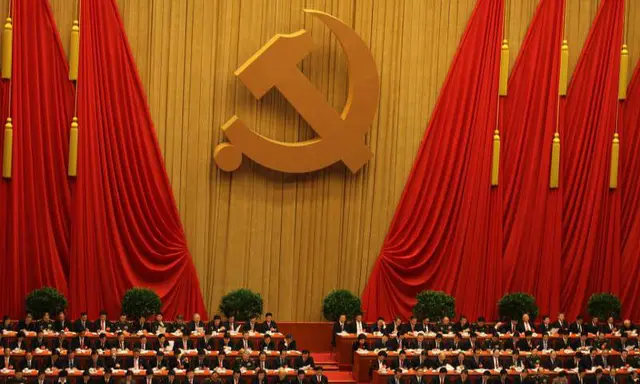It seems that the Afghan government would continue to be run by acting ministers after the Wolesi Jirga or the lower house of the Afghan parliament rejected some of the ministers appointed by Afghan President Mohammad Ashraf Ghani.
It took 110 days after his inauguration on Sept. 29, 2014 for President Ghani to form a cabinet composed of 25 ministers and one nominee each for the national directorate for security, which is the country's intelligence agency, and Da Afghanistan Bank, the country's central bank.
The formation of the new Afghan cabinet was officially announced Tuesday.
According to media reports, during the confirmation process, the lower house of the parliament rejected seven minister-nominees on Wednesday for having dual citizenship. The parliament called on the president to replace those it rejected.
Those rejected by the parliament include the nominees for key ministries such as defense, interior and foreign affairs.
"Although there are highly-qualified persons among the minister- designates, the people in general seem unsatisfied with the cabinet list," Abdul Qayum Sajadi, a member of parliament, said.
Sajadi said that it is not impossible to find 25 qualified and competent individuals but without dual nationalities from among the 30 million Afghans.
"The step of the Wolesi Jirga to reject the dual nationality holders is appreciable. Afghanistan is not facing a shortage of highly educated and professional people," Najib Paikan, a political analyst, said.
Kabul University Professor Tahir Hashimi told the local media that the cabinet formation shows that there are still differences within the so-called unity government.
"Unfortunately, differences between the two teams have surfaced in the cabinet formation. In my opinion it is a coalition cabinet and the coalition cabinet naturally is breakable," Hashimi said.
"It may take weeks and even months to complete the process of scrutiny of ministerial candidates but the coalition should choose from among those with no nationality problem," the academic said.
After his inauguration, President Ghani promised to form a cabinet within 45 days but the process was delayed.
Afghanistan's presidential election was held on April 5 last year and since none of the eight candidates secured more than 50 percent of the votes cast, a runoff was held on June 14 between Ghani and Abdullah Abdullah, the two leading candidates.
Since both candidates disputed the transparency of the polls, the U.S. Secretary of State John Kerry visited Kabul at least twice in July and August to mediate and finally struck a deal wherein Ghani became president and Abdullah became chief executive, a post equal to that of a prime minister.
 简体中文
简体中文

